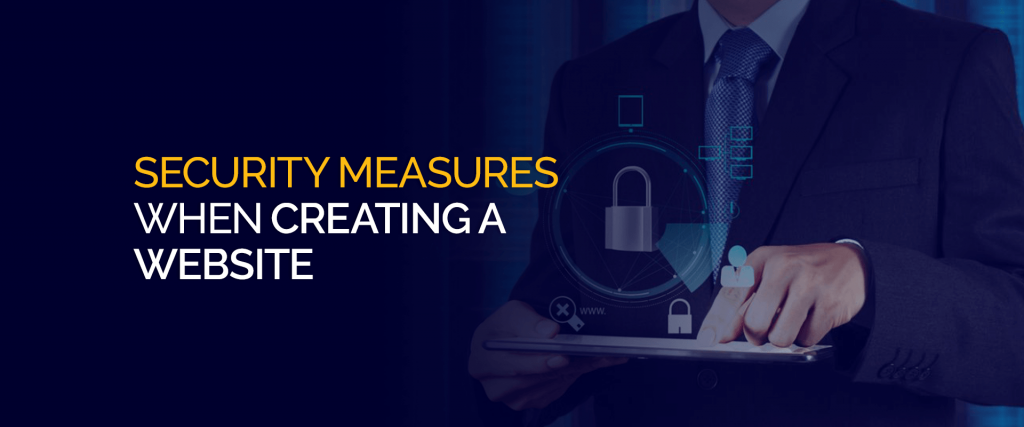

Get 93% OFF on Lifetime
Exclusive Deal
Don’t miss out this deal, it comes with Password Manager FREE of cost.
Get 93% off on FastestVPN and avail PassHulk Password Manager FREE
Get This Deal Now!By Johan Curtis No Comments 5 minutes
Privacy has become incredibly important in an age of government surveillance and easy access to information. If you’re still using the internet without a VPN, you’re being willfully naive at best. Even if you think there is nothing of importance in your online activity, it reveals a lot about you, including what you’re doing, where you’re going, and so on.

Security becomes all the more important when you’re creating a website. With a business website, it’s a no-brainer, but even when your website is personal, privacy is crucial to your safety. Hackers could steal your ideas or simply hold your website for a ransom. You could see all your hard work going to waste. Whatever the reason you’re creating a website, make sure to take these security measures.
The best VPS hosting serves an important purpose. It provides private hosting that won’t cost you an arm and a leg. This is particularly relevant for individuals not working under a corporation, who cannot simply splash out on dedicated hosting. While VPS hosting is still shared, it grants you the privacy you need within shared servers.
Of course, this comes with the caveat that it’s not just the type of hosting that is important. The provider you choose is extremely relevant as well. There are many examples of bad hosting providers out there, so be sure to do your research.
A secure protocol should not be an additional feature when building your website. While HTTP websites still abound, there’s no reason yours should be one of them. HTTPS not only protects you, but it protects your visitors’ information as well.
It also helps you retain visitors. Many web browsers won’t go directly to websites using unsecured protocols. They’ll ask for permission first, which should cause visitors to hesitate. It’s no longer expensive, so make sure this simple detail does not hinder your website’s security and success.
Any software you’re using to build your website can provide another route past your security. Good software has security features built-in, and you should never have to worry about them failing you. However, if you delay updating your software, you leave room for security issues. Most software updates provide added security, especially when dealing with new threats. While it may have been perfectly safe in the past, an update will ensure it stays that way.
Password security is crucial both on your side and that of your visitors. Any passwords that give you access to your website need to be complex and well-guarded. This is the easiest way to “hack” a website (if it can even be called hacking) and where most people fail. Do not be lazy.
This applies to the passwords of your visitors as well. Give them password requirements that make sense but push them to be more creative. When you store their passwords, store them as encrypted values. You should not be able to access them and anyone gaining access to your website can be stopped from taking advantage of them.
Securing your website can be incredibly challenging as hackers are getting more ruthless and creative in the way they infiltrate and corrupt website data. Make sure you watch out for SQL injection as hackers can insert rogue code into your query and use this to their advantage. If a hacker successfully inserts rogue code into your query, they can gain complete access to all of the data of your website, this includes client data as well.
Rest assured, you can easily circumvent this issue by using parameterized queries. It is quite simple to use and is a readily available web language. All you have to do is explicitly parameterized your queries and safeguard your website from SQL injection.
If you are planning on allowing users to upload files on your website, please reconsider this decision as it can induce many different problems. Once the file has successfully been uploaded, if it contains a malicious script, the hacker will gain instant access to your website. If your platform can not operate without allowing users to upload files, you will need to take every necessary step to ensure these files are free from malware or corrupt scripts.
This is a huge problem for websites that require users to upload images. There is no possible way to check if the file is really an image unless you open the file or check the file extension. In such cases, we would recommend preventing direct access to the files being uploaded and setup malware protection or Firewall.
At the end of the day, as a website owner, it is your responsibility to provide clients with immaculate digital security. If consumers do not trust your website, surviving in this digital age will be next to impossible. So make sure you consider all of the aforementioned tips and devise your website with meticulous attention.
© Copyright 2024 Fastest VPN - All Rights Reserved.


Don’t miss out this deal, it comes with Password Manager FREE of cost.
This website uses cookies so that we can provide you with the best user experience possible. Cookie information is stored in your browser and performs functions such as recognising you when you return to our website and helping our team to understand which sections of the website you find most interesting and useful.
Strictly Necessary Cookie should be enabled at all times so that we can save your preferences for cookie settings.
If you disable this cookie, we will not be able to save your preferences. This means that every time you visit this website you will need to enable or disable cookies again.


